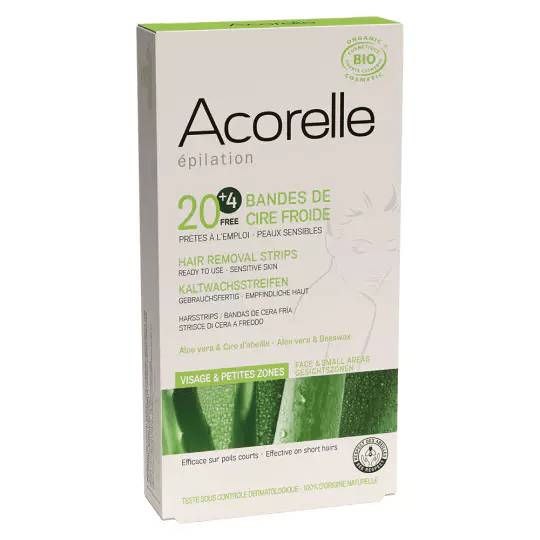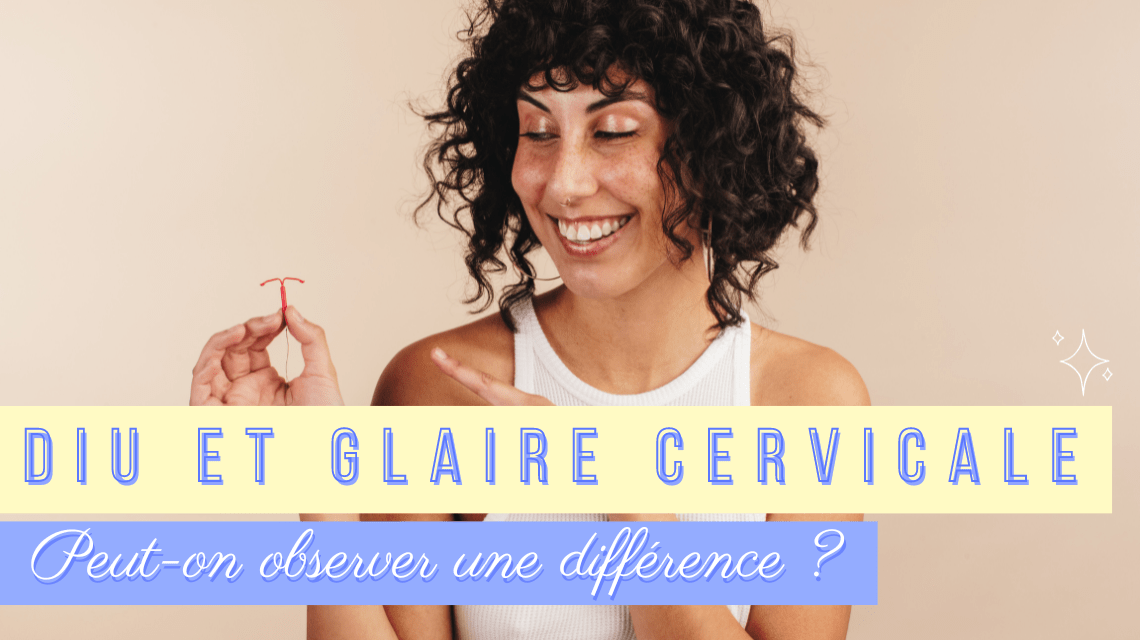In some women, hair growth seems to increase after stopping the pill. Here, when we talk about hair growth after stopping the pill, we're talking about hair and hair regrowth in so-called "male" areas. We also talk abouthirsutism after stopping the pill. This regrowth occurs mainly in the following areas:
- Chin;
- Moustache;
- The part of your cheeks ;
- Nipples;
- The pubis - navel line;
- Inner thighs;
- Between the breasts.
So why does hair growth increase when the pill is stopped? We talk about it in this article and give you our ideas for solutions!
Why does hair re-grow when I stop taking the pill?
Whether on the face or the body, some women find that their hair grows thicker after they stop taking the pill. Where do they come from?
Why do I have a lot of hair?
With some pills, testosterone levels are generally very low due to the presence of progesterone, which acts as an anti-testosterone agent. It is even lower in women taking so-called "anti-acne" pills (such as Diane 35). In fact, the lower the testosterone level, the lower the sebum production. The aim is to limit acne through this mechanism.
In fact, when the pill is stopped, this rate will rise again. And when it goes back up, it may be associated with a return of certain points that are related to testosterone levels. These include: sebum production and hair growth.
This is already one of the first points that can explain faster and/or more extensive hair regrowth.
That said, testosterone levels are an important element of overall hormonal balance, once stabilized. It's all a question of balance.
How long does the rebound effect and hair growth last?
Will the hair grow at a crescendo until it never stabilizes? So overall, no. Hair regrowth can be faster and last longer. Nevertheless, the extent of regrowth (from a localization point of view) will tend to stabilize at some point.
This may stabilize as the body regains a better hormonal balance, after a few months post-pill. This may vary from woman to woman, but on average it takes from 6 months to a year post-pill, or even longer. This is not necessarily abnormal. If you're worried about this, after 4 or 5 months post-pill, you can always ask for a hormone test to check your testosterone levels.
Can the pill make hair grow?
Hormonal pills or contraceptives containing only progestin can increase hairiness. This is the case for progestin-only pills containing a synthetic progestin, either desogestrel (e.g. Cerazette, its generics Optizimette, etc.) or levonorgestrel (e.g. Microval). Hormonal IUDs are another example. It is therefore less common to observe this side effect. If it persists, talk to your gynecologist.
Does the pill reduce hair growth?
How to rebalance hormones after stopping the pill?
Balancing your hormones means supporting your body with a healthy lifestyle. The three main areas to focus on are :
- your diet: by eating enough calories and protein;
- your sleep to make it restorative;
- your stress, which is your cycle's worst enemy.
When you stop taking the pill, how long does it take for your body to return to normal?
Allow at least 6 months to observe whether or not you have any side effects after stopping taking the pill. Synthetic hormones are relatively quickly processed and eliminated. So if you notice symptoms after more than a year, it's not due to stopping the pill. If in doubt, consult your doctor.
What is our "normality" in terms of body hair?
The pill is often prescribed at an early age. As a result, body and biological development may not yet be optimal when hormonal contraception starts.
In fact, we don't necessarily know our bodies very well without the pill, and therefore we don't know our body hair without the pill either, in adulthood. His "woman" hair. We've been in a bit of a bubble for several years. When you're on the pill, you don't really know how your body works naturally.
This leads to a relatively skewed relationship with our bodies, on a number of points. Especially when it comes to facial hair.
This notion is really important, as there can be a great deal of ambiguity surrounding it. The return of hair growth can seem frightening when you stop taking the pill, but at the same time it's part of the process of rediscovering yourself and your body. With the appearance or reappearance of certain attributes that are not necessarily "abnormal". It's just that we didn't have the time to get to know each other a few years earlier.
Can you tell the difference between normal and excessive hair growth?
In addition to the perceptual bias linked to what we've explained above, there are other elements that may give you some clues. In particular, in the way your menstrual cycle unfolds overall. What to look for may be the presence of a persistent hormonal imbalance. For example, if you have very irregular cycles, cystic acne, or other disorders/symptoms that make your cycle more difficult to live with, in that case, there may be other avenues to explore.
Test your testosterone levels
For example, by taking blood samples to test testosterone levels. You can then go to a doctor or gynaecologist and ask for a prescription with the markers to be taken for the blood test.
Depending on the results, you'll then be able to draw better conclusions and know how to proceed. But remember that there are always several factors to correlate before drawing any conclusions. Only your doctor can make a diagnosis.
How can I reduce my hair growth?
As always, there are no miracle solutions. It's a series of small actions that will allow you to see progress. Allow 3 months to see a change.
Internal solutions for facial hair
Lowering testosterone levels is one solution. In fact, your doctor may suggest that you go back on the pill. Nevertheless, if you're reading this article, it's because you're potentially looking for other leads.
Lifestyle adjustments
As we all know, stopping the pill causes hormonal imbalance. As with acne, these symptoms will have something to do with what's going on internally. In any case, when you stop taking the pill, you'll be looking to re-establish an internal balance.
That's why we're going to put certain things in place to help the body through this transition. And look for a routine that will last and last. We are generally unaware of the lifestyle actions that would enable us to have a more optimal lifestyle/routine so that the body finds its balance when we stop taking the pill. Because there are so many biased mechanisms on the pill, we're not aware of everything that can have a positive or negative impact on the progress of the cycle, on energy, sleep, etc.
Balancing testosterone?
But when you go off the pill, when your cycle's a bit out of kilter, you may finally realize that your lifestyle has an impact in this area. So we'll be able to play on that to try and have a positive impact.
Obviously, we're trying to stabilize testosterone levels, but testosterone levels are themselves dependent on other sex hormones, and sex hormones are also dependent on other hormones.
In particular, we aim to stabilize blood sugar levels to help stabilize testosterone levels. There are some very simple things you can do, such as incorporating 4 meals a day (i.e. a food intake approximately every 3 - 4 hours). All this while trying as much as possible to lock in the 3 macronutrients (fats, carbohydrates, proteins) per meal.
It's a global job
To go further, you can also consult a professional to adjust your dietary intake and help restore hormonal balance. A check-up will enable you to take stock of your situation and draw up a protocol tailored to your needs, both in terms of nutrition andpsychology. Indeed, this last point should not be overlooked in the treatment of hirsutism.
The purpose of coaching is to help you understand the ins and outs of everything you do. Don't spread yourself too thin, and gain real autonomy.
External solutions for excessive hair growth
It's also important to talk about external solutions, because everything has to be considered. These aren't just temporary solutions, and they can really help you find the balance that's right for you.
Hair discoloration
Particularly on the face, as this can be where it bothers us the most. That's blonding hair with hair bleaching kits that can be bought easily. It's a little mixture in paste form that you can make yourself and place on the desired spot for a few minutes. This could be a first solution. For example, cutting hair with scissors to make it more imperceptible (without having to shave).
Hair removal
Either do-it-yourself hair removal, or in an institute. Then there are several types of hair removal:
- With wax;
- Thread ;
- There are also depilatory creams specially designed for the face.
Be careful if you're waxing your face: if you have sensitive skin, you need to be careful. Whether you do it yourself or go to an institute, be careful. Because if your skin is too aggressed by waxing, it will become even more fragile (especially if you have fairly hard hair). This can lead to red marks, pimples, itching, etc. Always remember to disinfect and moisturize.
Permanent hair removal
So the budget isn't the same, but it's still a good solution too. Is it ultra-definitive? It depends on the woman. Sometimes, major hormonal changes (e.g. during pregnancy and post-pregnancy) can have an impact on hair growth.
Find the balance that suits you
The most important thing is to find the balance that suits you. It's clearly not easy, in a society that's waging war on hair (on women), to feel confident about this rebound in hairiness, which you may never have experienced before.
There are no natural miracle solutions to this, and the best solution will be the one you feel most comfortable with at the time. It's a bit of a balance between what you want to accept/support, and what you don't feel ready for. External solutions are a good way of dealing with this hairiness if it bothers you. But if that's not enough for you, some hormonal treatments (contraceptive pill) will certainly be more so. On the other hand, they are not without side effects either.
Sources :






